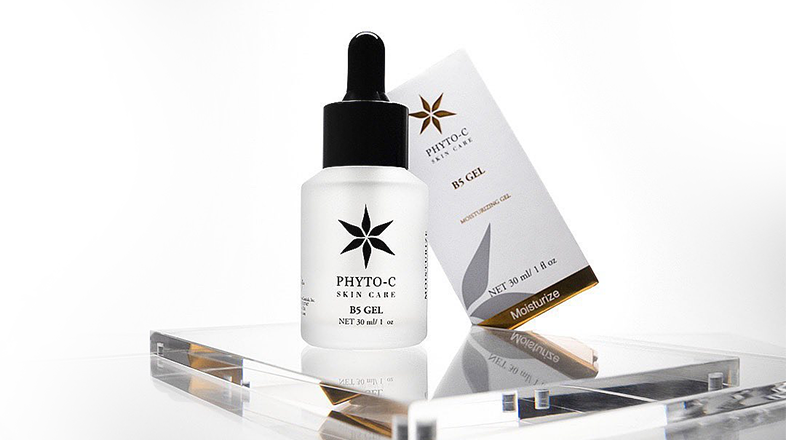Many people know Vitamin C serum works as a skin brightener and anti-aging solution yet sensitive skin types need special attention when using it. Vitamin C works as an effective antioxidant to lower dark spots and develop collagen along with skin protection, but it triggers dryness together with irritation and redness. Learning appropriate application methods will help you reduce discomfort when using Vitamin C. Everyone who uses vitamin C serum for sensitive skin needs to select appropriate formulas while applying them properly and following safety protocols so they can benefit from this product without adverse effects. This text explores a step-by-step method to apply Vitamin C serum without worsening sensitive skin reactions.
Why Sensitive Skin Reacts Differently to Vitamin C?
People with sensitive skin possess low barrier strength, which results in an increased risk of irritation when applying potent ingredients to their skin. Because pure L-ascorbic acid possesses acidic properties, it triggers reddening and burning or tingling sensations on skin surfaces. The skin needs more time to balance its acidity because its protective barrier cannot effectively neutralize the acidic substances, thus causing discomfort.
The additional reason explains how sensitive skin frequently responds intensely to elements in the environment, which include polluted air and exceptionally cold or hot weather conditions. Young skin that involves excessive renewal due to Vitamin C application may experience unwanted stimulation when it is already compromised. Sensitive skin requires a lower starting concentration before a gradual development of tolerance to vitamin C serum for sensitive skin online products.
Understanding the Different Forms of best vitamin C serum for sensitive skin
The ingredient vitamin C serum for sensitive combination skin presents itself in different chemical forms, which offer distinct strengths and concentrations. The substance L-ascorbic acid serves as the leading and most commonly deployed form of vitamin C because of its exceptional antioxidant capacity. The acidic nature of this vitamin makes it potentially irritating to tender skin types. The derivative sodium ascorbyl phosphate presents another option for sensitive skin by turning it into ascorbic acid within the skin layers for equivalent benefits without excessive skin irritation. Magnesium ascorbyl phosphate represents a suitable water-based antioxidant that works well as a moisture enhancer suitable for dry, sensitive skin types.
Two derivatives of best vitamin C serum for sensitive skin, such as ascorbyl glucoside combined with tetrahexyldecyl ascorbate, provide gradual skin adjustment through slow-release formulas suitable for sensitive complexions. Selection of the ideal vitamin C derivative is essential because it determines how well your skin avoids damage while improving its appearance and supporting collagen manufacturing.
The Best Low-Irritation Good Vitamin C Serums for Sensitive Skin
The search for an good vitamin C serum for sensitive skin needs people to select gentle products. The combination of serums, which contain sodium ascorbyl phosphate alongside magnesium ascorbyl phosphate, works perfectly for antioxidant benefits because they deliver gentle treatment instead of ascorbic acid's harsh effects.
Choose serums that contain hyaluronic acid aloe vera or niacinamide because these calming ingredients relieve inflammations and offer comfort to sensitive skin. Select products that contain none of the following ingredients: perfume, alcohol, and parabens since these components encourage sensitivity reactions. When vitamin C exists in an encapsulated form, brands deliver superior protection to sensitive skin through slower and controlled release methods. People with sensitive skin can access vitamin C benefits through well-chosen formulas, which will not produce their typical allergic reactions.
Patch Testing: Why It’s a Must for Sensitive Skin?
Both sensitive skin types need to conduct a patch test before full serum application since it detects allergic reactions before full application. Example testing begins with moisturizing a tiny quantity of serum on your inner forearm or behind your ear and continuing observation throughout the 24 hours. The product demonstrates compatibility for facial use when no signs of redness burning or itching appear after the waiting period. The appearance of skin irritation during patch tests indicates that the concentration level is too strong and there exists sensitivity to one of the product ingredients.
Individuals with sensitive skin need to perform multiple patch tests during their exploration of different best serum for sensitive skin dermatologist recommended products. High-acidic formulations should be replaced with lower pH because they help decrease skin irritation. Subjecting the skin to the product only every other day instead of daily aids its tolerance development process. A precautionary step protects the transformation process when people include Vitamin C products in their gentle skincare practice.
The Right Application of Vitamin C with Other Skincare Products
The correct placement of Vitamin C serum among other skincare components ensures people gain optimal results alongside reduced skin sensitivity. The absorption success of Vitamin C depends on its application right after cleaning and before moisturizing. You should pick an alcohol-free hydrating toner that avoids causing additional dryness when using it. The combination of using a hyaluronic acid serum before Vitamin C application serves as an irritant buffer to defend against potential adverse reactions.
The combined use of vitamin C with strong exfoliating agents like AHAs and BHAs should be avoided in one routine because they may worsen sensitivity. It is best to use retinol during nighttime hours while scheduling Vitamin C use for the morning period to minimize potential overstimulation. People should protect their skin from the sun immediately after vitamin C applications because the vitamin makes skin more vulnerable to sunlight. The correct sequence of skincare applications allows sensitive skin to protect and brighten properly with vitamin C without experiencing painful effects.
Tips for Reducing Irritation When Using Vitamin C
When applying antioxidant Vitamin C Serum for Sensitive Skin, some irritation can occur, but adjustments to the treatment will help manage discomfort effectively. People with sensitive skin should begin with Vitamin C serums containing 5-10% concentration because stronger solutions may produce adverse effects on easily irritated skin. You should use Vitamin C on your skin after cleansing when it is totally dry because moist pores can boost absorption while adding to irritation levels. The application of moisturizer immediately following vitamin C treatment will trap moisture and establish a shield to prevent skin sensitivity.
Users should prevent mixing vitamin C with strong exfoliants that include glycolic acid and retinol since this combination intensifies irritation. The gradual skin adjustment will be facilitated by using Vitamin C on alternating days when irritation continues to appear. Time will help your skin develop tolerance toward vitamin C so you can experience its benefits in comfort.
Should You Use Vitamin C Every Day?
Daily application of Vitamin C promotes excellent skin benefits, yet individuals with sensitive skin must maintain balanced usage because of the possible risks. Individuals with skin sensitive to Vitamin C should introduce products by applying them to their skin on alternate days to determine their reaction. Daily application of Vitamin C serum is suitable after verifying your skin shows no indications of irritation such as redness or stinging. You should opt for serum solutions with concentrations between 5 and 10 percent because they present the best daily protection level for sensitive facial skin.
Check your skin’s reactions carefully. Regular monitoring of skin sensitivity should lead you to reduce Vitamin C use while choosing a gentle, fragrance-free moisturizer to use alongside it. Sunscreen application during the daytime becomes essential when using Vitamin C since the active ingredient makes your skin more vulnerable to sunlight. Proper vitamin C application during each day helps your skin achieve brighter radiance and smooth skin coloration while stimulating collagen development and maintaining irritation prevention.
The Role of pH in Vitamin C Effectiveness
The effectiveness and skin reaction of Vitamin C serum depends heavily on its pH value. At a pH level between 3 and 3.5, vitamin C reaches maximum absorption rates when penetrating the skin. The most suitable pH for sensitive skin vitamin C serums should range from 5 to 6 because this balance reduces irritation during use. Alertness toward pH values helps you maintain both the complete effectiveness of Vitamin C and the comfort of your skin.
What to Do If Vitamin C Causes Redness or Dryness?
The frustrating effects of redness and dryness from Vitamin C usage can still be managed through different tactics instead of discarding the serum. The first step to avoid irritation is to confirm the strength level of your vitamin C because amounts higher than 15% could potentially harm sensitive skin. The application of vitamin C to wet skin should be avoided because it may worsen irritation. Apply the serum when your skin has reached its completely dry state.
Using vitamin C together with a fragrance-free moisturizer that brings soothing effects helps minimize both dry skin and irritation. You should stop using Vitamin C serum daily and blend it with your moisturizer instead when redness persists. Using vitamin C with retinol or AHAs together will cause additional stress on your skin tissues. Your skin can experience all the anti-aging and brightening advantages of Vitamin C through proper application adjustments.
Conclusion
The proper application of Vitamin C serum with sensitive skin demands both time and appropriate procedures. Your selection of a mild formula combined with gradual use and hydration ingredients will help protect your skin while you experience the lightening and anti-aging properties of Vitamin C. The key steps include testing small portions of your skin before application and then building layers to adjust application time according to your skin's reactions. For reliable Vitamin C serums that work on sensitive skin use the high-quality dermatologist recommended vitamin C serum for sensitive skin called Phyto-C. You can get a vibrant, healthy facial appearance through proper skin care, which avoids any unpleasant feelings.




 Next Post
Next Post